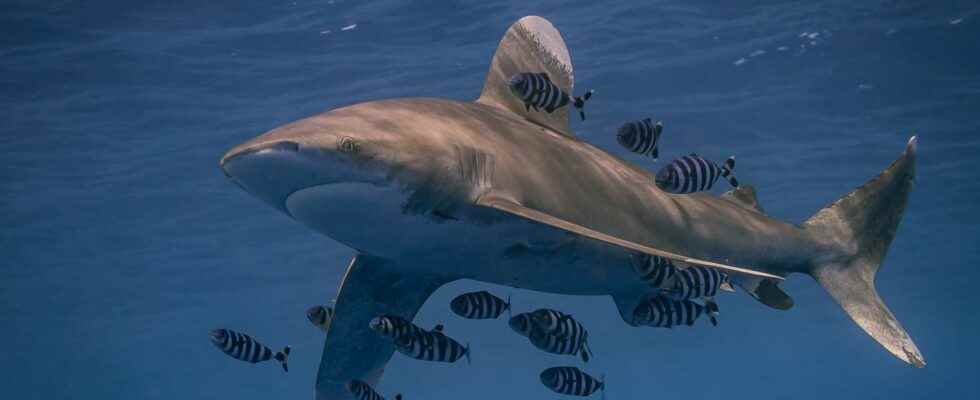The year 2021 was marked by ocean heat record at the global level and numerous episodes of underwater “heat waves”. According to a Rutgers University study, published in the journal Proceedings of the Royal Societyglobal warming will lead to a decrease in the amount of Pisces in the oceans and will alter the interactions between large marine predators and prey.
The biggest species will have to change their habitat area to be able to continue feeding, just like the world’s major fisheries. A threat compounded by overfishingwhich will be inevitable everywhere on Earth over the next few years: as there will no longer be as many fish, but more and more humans, the problem of overfishing will be generalized. Fish populations and shellfish will no longer be able to renew themselves as quickly because the Warmingcoupled with the growing need for food, will wipe out a large part of the marine population according to the researchers.
Large predators “lagging behind” in relation to global warming
The study focuses on the trophic relationships of marine life: these are food chains interconnected within a ecosystem, in this case, the marine environment. Researchers have tried to understand how the basic need for food affects movements some change. They developed a “food web model” that includes parameters such as the metabolism of hundreds of marine animals, their size and growth, and the optimum temperature ranges needed for each species.
Taking climate change into account, their model found that it’s the predator-prey relationship that complicates the species’ ability to respond quickly to rising temperatures. They also found that larger predators stayed longer in their historical habitats, despite warming, than smaller species.
While the disappearance of corals due to global warming is well known to scientists and the general public, the fate of large, sometimes unloved predators is less publicized. The sharks, among others, will inevitably have to migrate in order to continue to feed. But, according to Rutgers University, they will also be the hardest to adapt, as the climate evolve faster than their ability to relocate to a new environment, unlike small fish species.
The models used to determine their migrations show that marine species will have to continually relocate from place to place, towards the poles, over the next 200 years. And even after 200 years, top predators will still lag behind the speed of temperature change, especially those at the top of the food chain.
Interested in what you just read?
